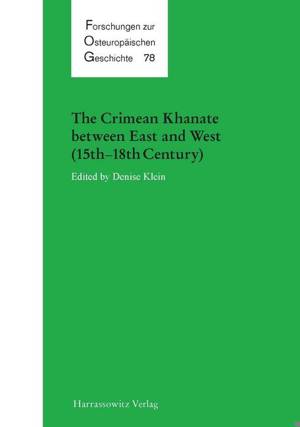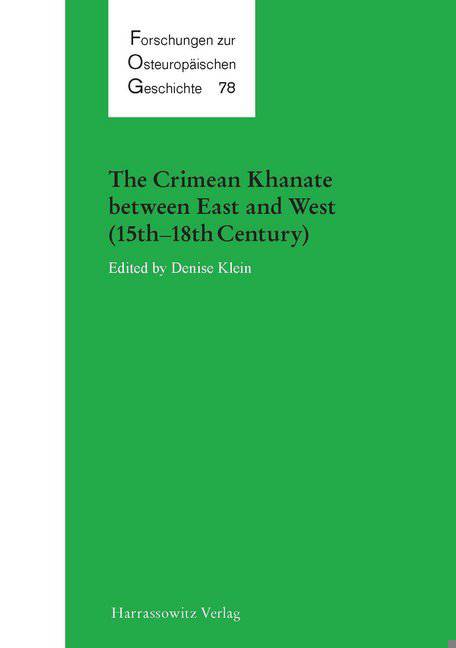
Bedankt voor het vertrouwen het afgelopen jaar! Om jou te bedanken bieden we GRATIS verzending (in België) aan op alles gedurende de hele maand januari.
- Afhalen na 1 uur in een winkel met voorraad
- In januari gratis thuislevering in België
- Ruim aanbod met 7 miljoen producten
Bedankt voor het vertrouwen het afgelopen jaar! Om jou te bedanken bieden we GRATIS verzending (in België) aan op alles gedurende de hele maand januari.
- Afhalen na 1 uur in een winkel met voorraad
- In januari gratis thuislevering in België
- Ruim aanbod met 7 miljoen producten
Zoeken
The Crimean Khanate between East and West (15th-18th Century)
€ 53,45
+ 106 punten
Omschrijving
The Crimean Khanate between East and West, edited by Denise Klein, presents a collection of studies exploring the politics, society, and culture of the Crimean Khanate, as well as the khanate's place within early modern Europe. Twelve articles in English and German, written by scholars of different backgrounds and perspectives, introduce one of the least studied regions in Eastern Europe, from the emergence of the khanate as a successor of the Golden Horde in the fifteenth century until the end of Tatar rule with the incorporation of Crimea into the Russian Empire in 1783. The volume offers new research on the steppe traditions and the socio-political order of the Crimean heir to the empire of Genghis Khan as well as on the geopolitical role of a state that stood at the intersection between the Ottoman Empire, the Orthodox East, and the Latin West. It reveals the considerable freedom the khans enjoyed while being under Ottoman suzerainty and the various contacts the Islamic khanate maintained with its Christian neighbors. The volume also provides insight into a society of exceptional cultural diversity and into Tatar elite and popular culture. Finally, it traces how Christians' perceptions of Crimea and the Crimean Tatars impacted the formation of the European 'self' and European politics, until long after the end of Tatar rule.
Specificaties
Betrokkenen
- Uitgeverij:
Inhoud
- Aantal bladzijden:
- 241
- Taal:
- Engels
- Reeks:
- Reeksnummer:
- nr. 78
Eigenschappen
- Productcode (EAN):
- 9783447067058
- Uitvoering:
- Paperback
- Afmetingen:
- 170 mm x 240 mm
- Gewicht:
- 500 g

Alleen bij Standaard Boekhandel
+ 106 punten op je klantenkaart van Standaard Boekhandel
Beoordelingen
We publiceren alleen reviews die voldoen aan de voorwaarden voor reviews. Bekijk onze voorwaarden voor reviews.








